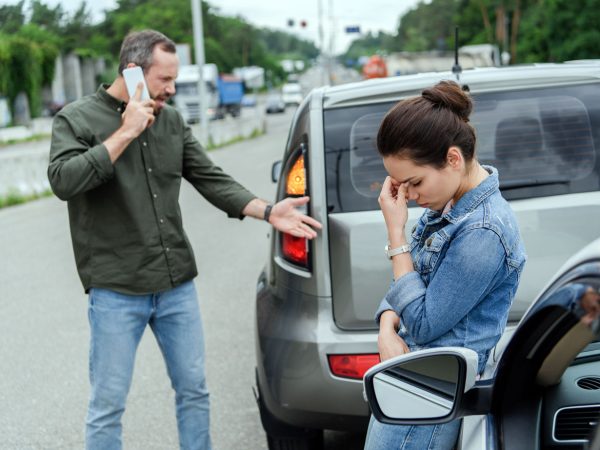
What Qualifies as a Wrongful Death Case?
A wrongful death case arises when an individual loses their life due to the negligence, recklessness, or intentional actions of another party. These cases allow surviving family members to seek compensation for the financial and emotional hardships caused by their loved one’s death. Understanding what qualifies as a wrongful death case is crucial for families looking to pursue legal action and hold responsible parties accountable.
Wrongful death lawsuits can stem from a wide variety of circumstances, including car accidents, medical malpractice, workplace incidents, defective products, and criminal acts. In this comprehensive guide, we will explore the key elements of a wrongful death case, common causes, parties eligible to file a claim, and the types of compensation available.
Elements of a Wrongful Death Case
To successfully prove a wrongful death case, the plaintiff must establish four key elements: duty of care, breach of duty, causation, and damages.
Duty of Care
The first step in proving a wrongful death case is demonstrating that the defendant owed a duty of care to the deceased. A duty of care is a legal obligation to act in a reasonable and safe manner to prevent harm to others. For example, drivers have a duty to obey traffic laws and avoid reckless behavior to protect pedestrians and other motorists. Similarly, doctors owe a duty of care to their patients to provide competent and safe medical treatment.
Breach of Duty
Once the duty of care is established, the plaintiff must show that the defendant breached this duty through negligence, recklessness, or intentional wrongdoing. A breach of duty occurs when an individual or entity fails to exercise reasonable care, leading to harm. For instance, a drunk driver who causes a fatal accident has clearly breached their duty of care. In a medical malpractice case, a surgeon who makes an avoidable surgical error could be found in breach of their duty to the patient.
Causation
Causation is the link between the defendant’s breach of duty and the victim’s death. The plaintiff must prove that the defendant’s actions directly caused or significantly contributed to the fatality. This can often require expert testimony and medical evidence. For example, if a patient dies due to a hospital’s failure to diagnose a life-threatening condition, medical records and expert opinions may be used to establish causation.
Damages
Finally, the plaintiff must demonstrate that the victim’s death resulted in damages, such as medical expenses, funeral costs, loss of income, and emotional suffering. Damages can be both economic and non-economic, and courts will assess their impact on the surviving family members.
Common Causes of Wrongful Death Cases
Wrongful death lawsuits can arise from a variety of situations where negligence or misconduct leads to fatal injuries. Some of the most common causes include:
Car Accidents
Motor vehicle accidents are one of the leading causes of wrongful death claims. Negligent drivers who engage in reckless behavior, such as speeding, distracted driving, or driving under the influence, can be held responsible for fatalities resulting from their actions. Additionally, trucking companies and rideshare services can be liable if their negligence leads to fatal crashes.
Medical Malpractice
When healthcare professionals fail to provide an acceptable standard of care, it can result in fatal consequences. Wrongful death claims in medical malpractice cases may involve surgical errors, misdiagnosis, medication mistakes, anesthesia complications, or hospital negligence. Families who lose loved ones due to medical negligence may seek compensation for medical bills, emotional trauma, and lost income.
Workplace Accidents
Employers have a responsibility to maintain a safe work environment and provide proper training to employees. Wrongful death cases in the workplace often result from construction site accidents, industrial machinery failures, exposure to toxic substances, and lack of proper safety measures. If an employer’s negligence leads to a fatal incident, they can be held liable for damages.
Defective Products
Manufacturers, distributors, and retailers have a duty to ensure that their products are safe for consumers. If a defective or dangerous product causes a fatal injury, the responsible parties can be sued for wrongful death. Defective products may include faulty medical devices, unsafe automobiles, hazardous pharmaceuticals, and malfunctioning appliances.
Criminal Acts
Intentional acts of violence, such as homicide, assault, or domestic violence, can lead to wrongful death claims. While criminal prosecution seeks to punish the offender, a wrongful death lawsuit provides financial compensation for the victim’s family. The burden of proof in a civil wrongful death case is lower than in a criminal trial, making it possible to hold offenders accountable even if they are not convicted in criminal court.
Who Can File a Wrongful Death Lawsuit?
The laws governing who can file a wrongful death lawsuit vary by state, but generally, the following parties are eligible to bring a claim:
Immediate Family Members
Spouses, children, and parents of the deceased are typically the primary beneficiaries in a wrongful death lawsuit. These individuals suffer the greatest emotional and financial impact from the loss of a loved one.
Legal Dependents
Some states allow legal dependents or financial dependents of the deceased to file a wrongful death claim. This may include stepchildren, domestic partners, or extended family members who relied on the victim for financial support.
Estate Representatives
In certain cases, the executor or personal representative of the deceased’s estate may file a wrongful death lawsuit on behalf of the surviving family members. Any compensation awarded is then distributed among the beneficiaries according to the deceased’s will or state inheritance laws.
Types of Compensation in a Wrongful Death Case
Wrongful death lawsuits seek financial compensation for both economic and non-economic damages. The goal is to alleviate the financial burden on surviving family members and provide justice for their loss.
Economic Damages
Economic damages refer to the measurable financial losses incurred due to the victim’s death. These may include:
- Medical expenses related to the deceased’s final illness or injury
- Funeral and burial costs
- Loss of the deceased’s expected earnings and benefits
- Loss of household services provided by the victim
Non-Economic Damages
Non-economic damages compensate for the emotional and psychological suffering experienced by surviving family members. These damages include:
- Pain and suffering endured by the victim before death
- Loss of companionship and emotional support
- Mental anguish and grief experienced by the family
Punitive Damages
In cases involving egregious misconduct, courts may award punitive damages to punish the responsible party and deter similar behavior in the future. These damages are more common in cases of gross negligence or intentional harm.
How an Attorney Can Help in a Wrongful Death Case
Navigating a wrongful death lawsuit can be complex and emotionally challenging. An experienced wrongful death attorney can provide invaluable assistance by:
- Conducting a thorough investigation to establish liability
- Gathering evidence, including medical records, accident reports, and witness statements
- Consulting expert witnesses to strengthen the case
- Negotiating with insurance companies for a fair settlement
- Representing the family in court if the case goes to trial
Seeking Justice for a Wrongful Death
Losing a loved one due to another’s negligence or wrongdoing is a devastating experience. While no amount of financial compensation can replace a lost life, a wrongful death lawsuit can provide justice and financial stability for surviving family members. Understanding what qualifies as a wrongful death case and seeking legal representation can help families navigate the legal process and hold the responsible parties accountable.
If you have lost a loved one due to negligence or misconduct, contact LA Personal Injury Attorneys for a free consultation. Our experienced legal team is dedicated to helping families secure the compensation and justice they deserve.


